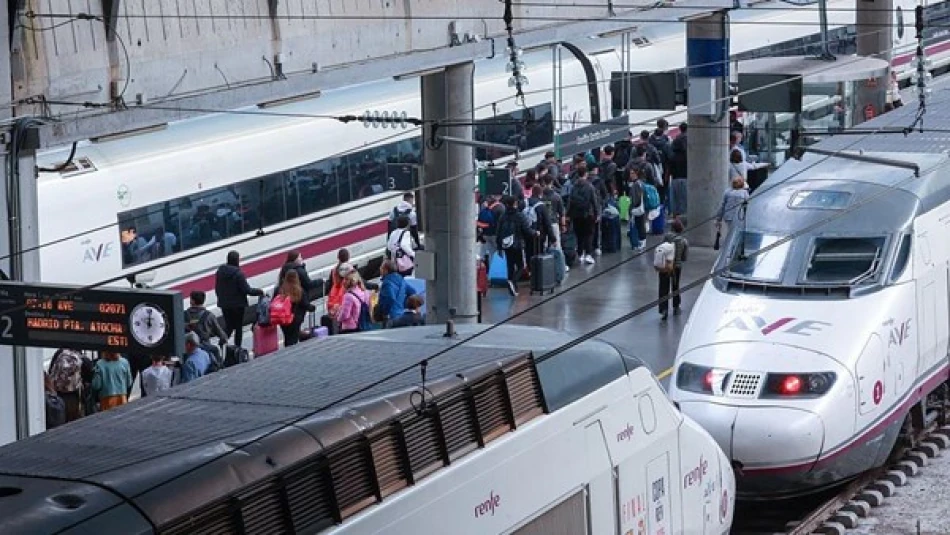
Disruption to High-Speed Rail Services in Madrid: Commuters Facing Delays
Spain's High-Speed Rail Network Crippled by Computer System Failure
Spain's national railway infrastructure operator ADIF experienced a major computer system breakdown on Thursday afternoon, bringing high-speed train services to and from Madrid to a standstill. The disruption highlights the vulnerability of modern transportation networks to digital failures, affecting thousands of passengers during peak travel hours.
System Breakdown Paralyzes Key Routes
ADIF announced via social media platform X that high-speed rail services connecting Madrid to other major Spanish cities were either suspended or significantly delayed following the computer malfunction. The company confirmed that backup systems were operational and services were being gradually restored, though no timeline for full recovery was provided.
Madrid serves as the central hub for Spain's extensive high-speed rail network, with routes connecting to Barcelona, Seville, Valencia, and other major destinations. The disruption likely affected the AVE (Alta Velocidad Española) services, which carry millions of passengers annually and compete directly with domestic flights on many routes.
Digital Dependencies Expose Infrastructure Risks
This incident underscores the growing reliance of critical infrastructure on computer systems and the cascading effects when they fail. Modern high-speed rail networks depend heavily on sophisticated digital control systems for scheduling, signaling, and safety management. Unlike traditional railways, these systems cannot easily revert to manual operations without significant safety implications.
The timing of the failure during Thursday afternoon—a peak travel period—maximized the disruption's impact. Business travelers, tourists, and commuters faced uncertain delays, potentially forcing many to seek alternative transportation or cancel plans entirely.
European Rail Networks Face Similar Vulnerabilities
Spain's experience mirrors similar disruptions across Europe's interconnected rail systems. Germany's Deutsche Bahn has faced repeated IT-related service interruptions, while France's SNCF has also grappled with technology failures affecting TGV high-speed services. These incidents reveal a common challenge: as rail networks become more sophisticated and digitized, they become more susceptible to system-wide failures.
The incident also raises questions about redundancy planning and crisis management protocols. While ADIF's backup systems eventually restored service, the initial complete stoppage suggests that failover mechanisms may need strengthening to prevent future total service interruptions.
Economic and Competitive Implications
For Spain's transportation sector, such disruptions can damage the competitive position of rail travel against airlines and road transport. High-speed rail's key advantages—reliability and punctuality—are undermined when passengers cannot depend on services operating as scheduled. This is particularly critical as Spain continues to expand its high-speed network and positions rail as an environmentally sustainable alternative to air travel.
The incident likely prompted immediate reviews of system resilience and backup procedures, as transportation authorities work to prevent similar widespread disruptions in the future.
Most Viewed News

 Layla Al Mansoori
Layla Al Mansoori






